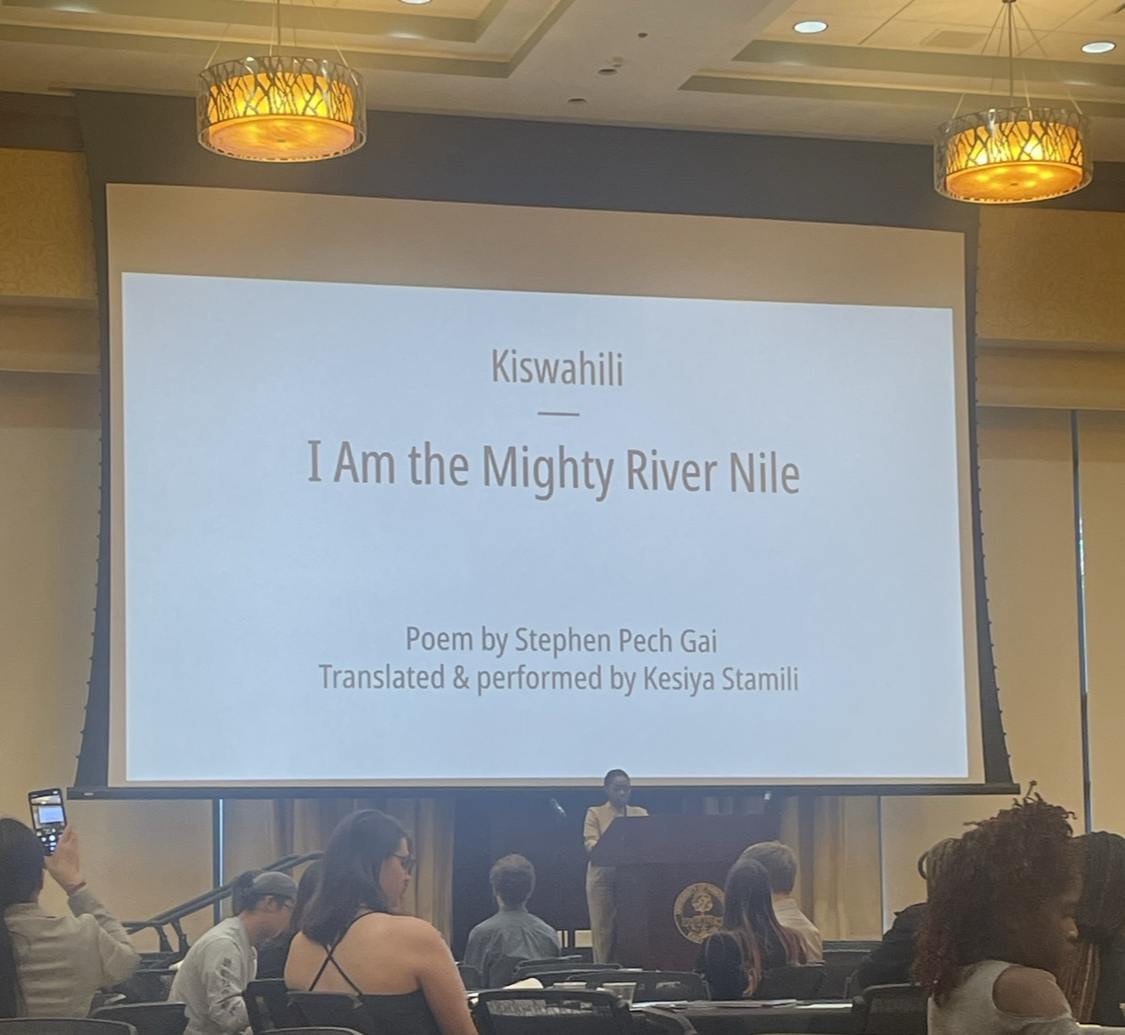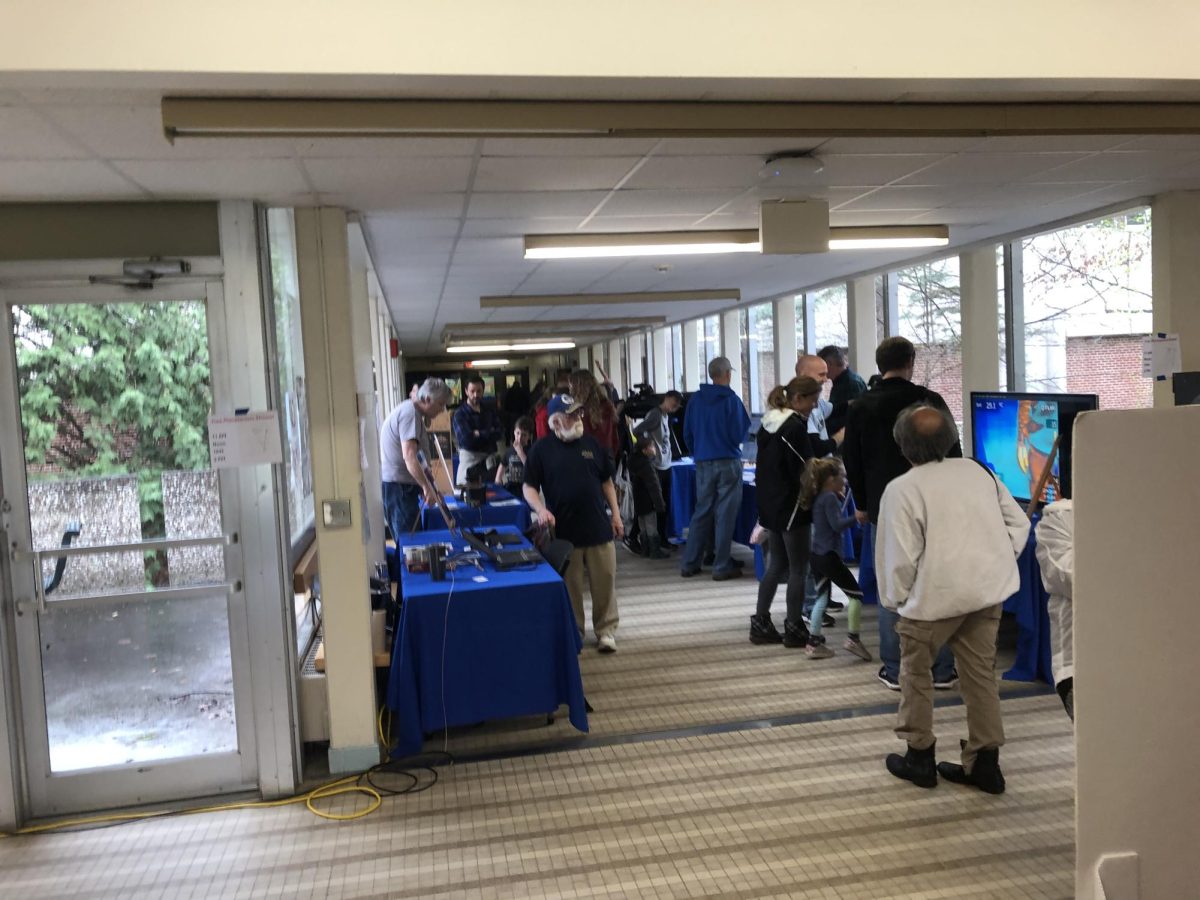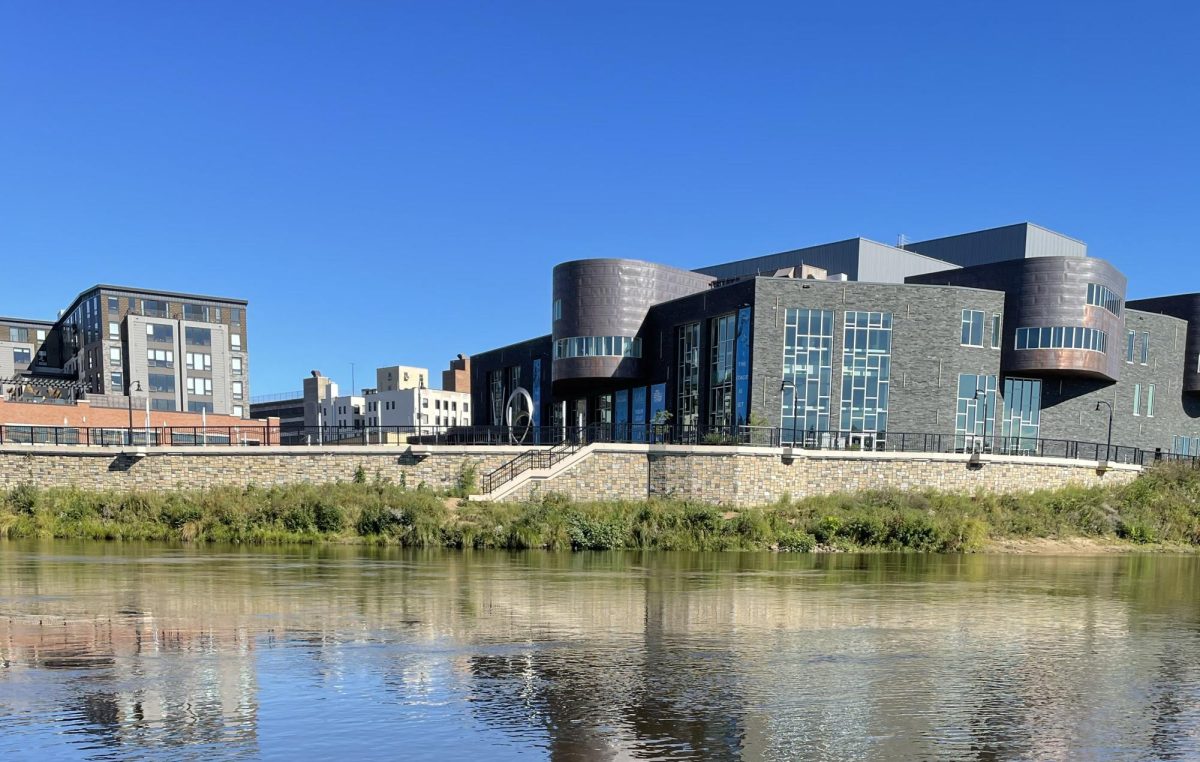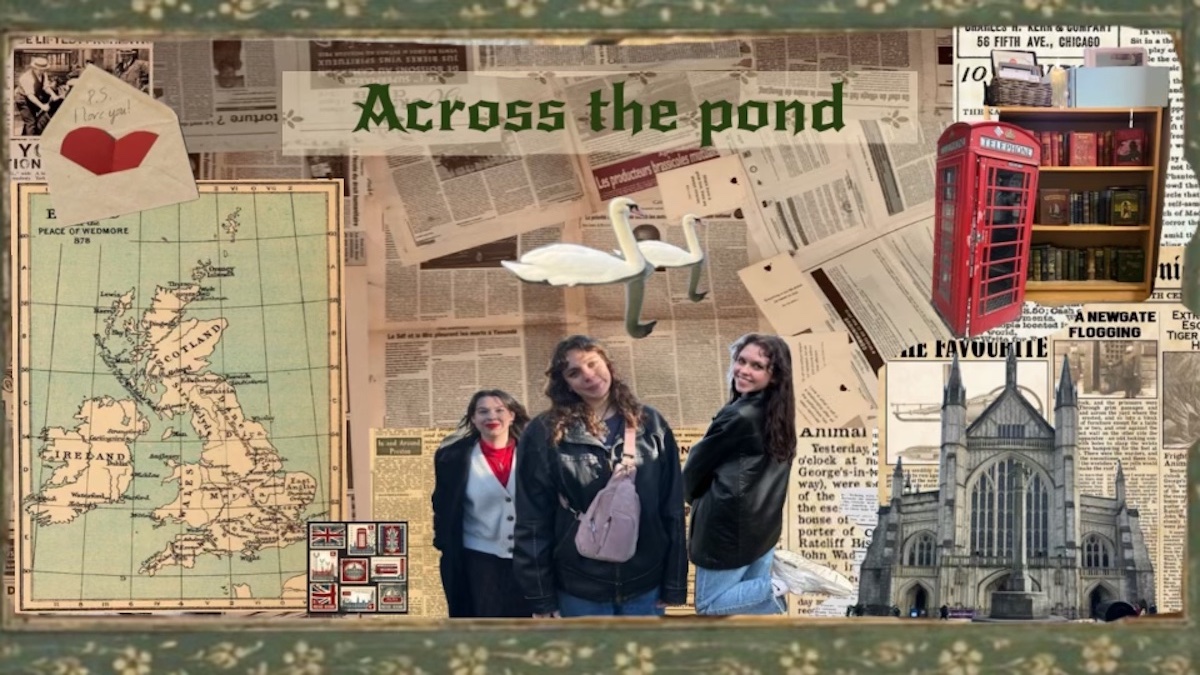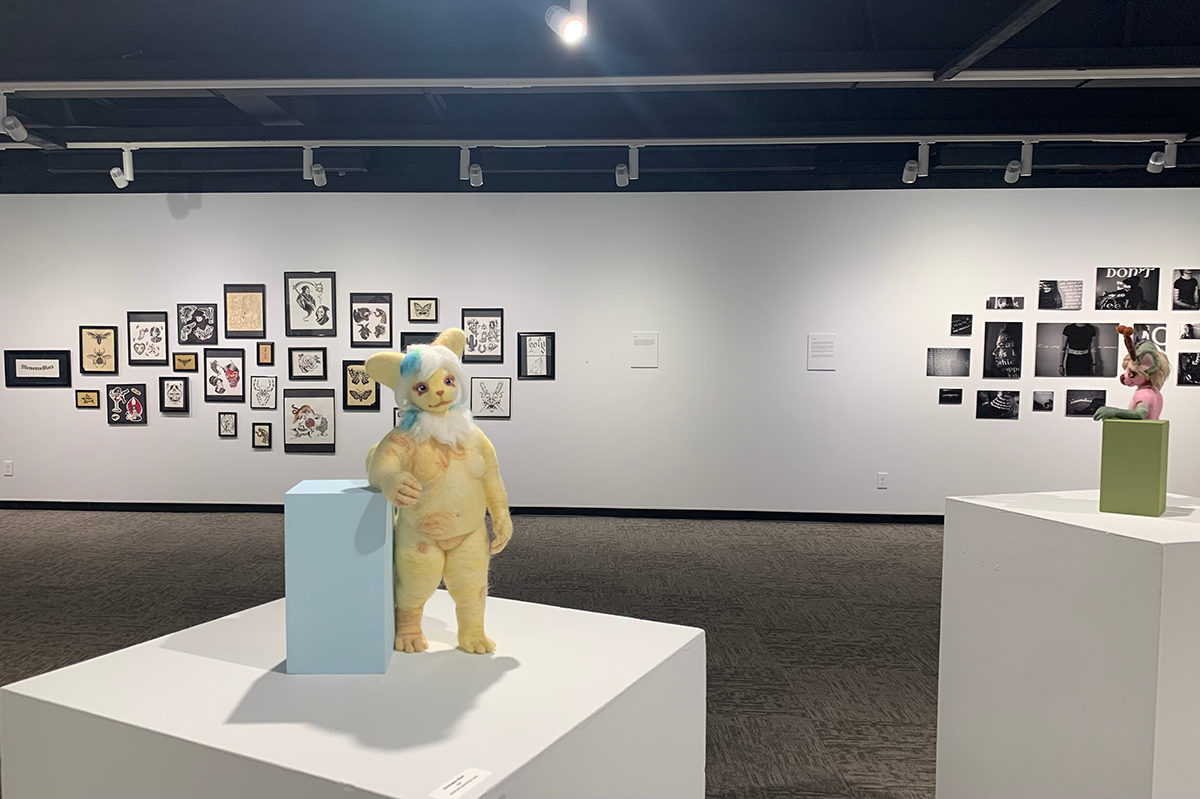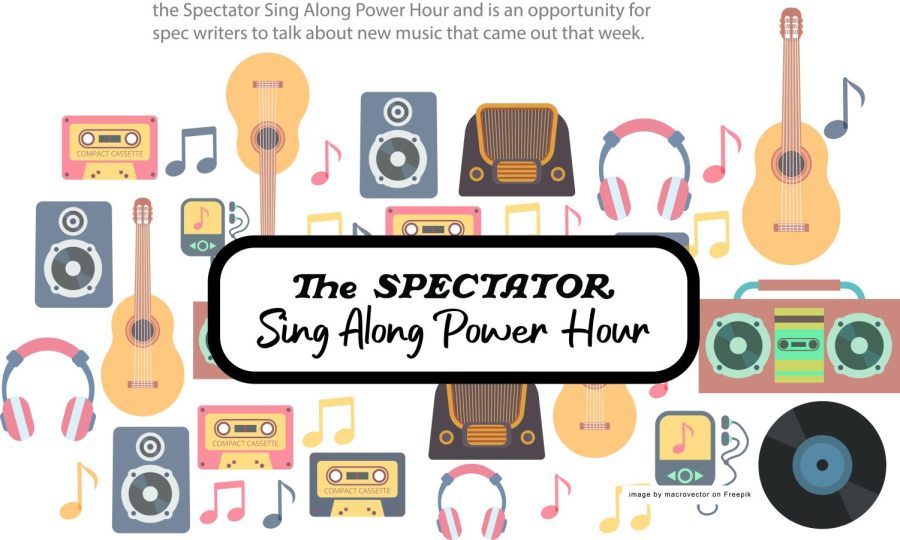The 18th annual International Poetry Reading, held at Davies Student Center on Wednesday, April 10, was well attended.
At 6 p.m. dozens gathered in the Ojibwe Ballroom for the event, which was sponsored by the International Student Association. The reading featured over 30 poems read in 28 different languages.
Prior to the poetry reading itself, those in attendance were greeted with a dinner buffet of cuisine from around the world. Once the guests were seated, the event’s three main coordinators took the stage to introduce the reading and to thank sponsors.
“We are so honored and joyful and proud to present this event to you for the eighteenth time,” orchestrator Kaishan Kong said.
Kong is an associate professor of languages at UW-Eau Claire and has been a driving force behind the International Poetry Reading for eight years.
Along with Kaishan Kong, this year’s event was planned by Josh Bauer, a digital accessibilities coordinator at the university who has been working with the event for seven years, and student coordinator Magan Lim.
Lim said this year, the International Poetry Reading was put on in partnership with the International Student Association.
The first reader of the night was partial sponsor, speech pathologist and former UW-Eau Claire professor Thomas King, who offered some welcoming remarks.
Thomas prefaced the reading by describing six major components of spoken language, including phonology (speech sound), syntax (order), morphology (how words change), semantics (meaning), pragmatics (how language is used) and the melody of speech.
“Language, as you know, is our lives. It’s been a part of my life, and in all probability yours too,” Thomas said. He encouraged the audience to pay attention to these components as they listened to each language.
Thomas and Debra King met as students at UW-Eau Claire in 1972 and help sponsor the event. Thomas King became involved with the UWEC International Poetry Reading during its seventh year in 2013.
During her time at UW-Eau Claire, Debra worked in continuing education and was creator of the School of Human Sciences and Services continuing education outreach, among many other programs she led.
Thomas is a professor emeritus of communication sciences and disorders and a retired clinical speech-language pathologist.
The couple raise registered Icelandic wool sheep at their farm. Thomas King read a poem in the Icelandic language at the event in addition to a newer work in POW Tap Code.
The readings commenced, featuring a number of local and international students, faculty and community members alike.
Each poem was projected on a screen, with text in its native language on the left and an English translation to the right. As each piece was read aloud, audience members could detect differences in timing, rhythm and melody between languages.
Some of the languages showcased included Latin, Mandarin, Ukrainian, Icelandic, Italian, French and even POW Tap Code.
Kaisha Kong said this was her eighth year being part of the event. For the first ten years of the International Poetry Reading’s existence, the bulk of the organization was done by two professors from the English Department who had started the tradition.
“I joined the university as a professor in 2014. At that point the reading was already happening,” Kong said. I joined as a reader soon before the professors running it decided to retire. I wanted the event to keep going, so I changed from reader to organizer.”
“I’ve been working with this event officially for several years, but I helped as a student coordinator prior to that,” Bauer said. “As an English major, I helped through an organization called ‘English Fest’ before becoming a staff member after graduation.”
Lim said she joined as a coordinator this year after reading a poem in Malay at last year’s event.
“I’m an international student from Malaysia. After coming here, I was in one of Professor Kong’s classes when she asked me to read,” Lim said. “This year she asked me to be on the organizing team. It’s all about spreading culture. That’s something I really want to do.”
Kaishan Yang said the bulk of the event organization occurs in the spring semester, when the coordinators start putting out calls for readers. In total, the team said they spend about 30 hours a year working on the event.
Yan Yang and Mamurahon Yuldasheva are international scholars who were both readers at the event this year. Yan Yang is from China and Yuldasheva is from Uzbekistan.
The two said they are both language teachers in their home countries and came to UW-Eau Claire to study teaching in the states. They have been living on campus since the beginning of the semester.
Yan Yang read “Written Casually on Coming Home” and “Song of the Ascending Tower at Youzhou Changzhou” in Mandarin. Yuldasheva read “Vatim,” or “My Country,” in Uzbek.
The coordinators stressed that the International Poetry Reading is an open community event.
“The poetry reading is not just for the university – it’s open to the public. Everyone is welcome to be a part of this community-friendly event,” Kaishan Yang said.
Wojahn can be reached at [email protected].

